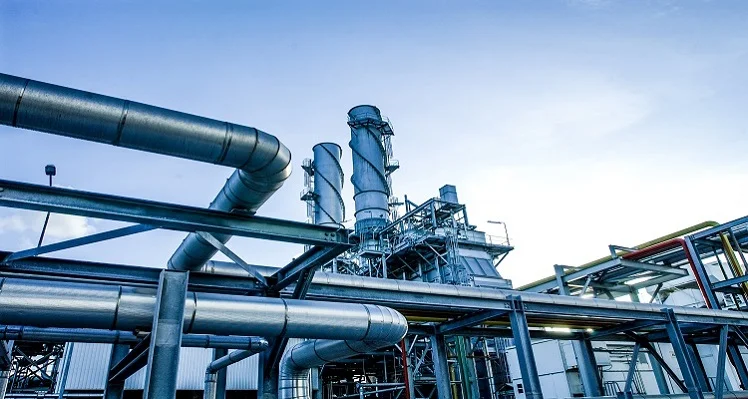In The Spotlight
IFS launches Nexus Black to accelerate industrial AI adoption
IFS, a leading provider of enterprise cloud and Industrial AI software, has launched IFS Nexus Black, a strategic innovation programme to drive ahead AI adoption for industrial organisations
Built on the foundation of IFS.ai, Nexus Black combines advanced AI technologies, deep industrial context and a dedicated delivery team, partnering with customers to tackle bespoke, complex challenges in asset-intensive industries. It enables rapid development and deployment of AI capabilities in a matter of weeks.
Initial use cases include predictive maintenance, manufacturing scheduling optimisation, AI copilots for service and sales, and intelligent automation for finance and supply chain.
Nexus Black benefits include:
• Agile, sprint-based co-creation and prototyping. A proven co-development model that is safe, scalable and fast
• Structured four phase model: Problem Definition; Proof of Value; Accelerated Development; Digital Continuity
• Access to dedicated AI engineers, domain experts, and solution architects, with deep expertise in industrial contexts and enterprise architecture
• Collaboration on agentic AI and contextual intelligence with industrial scalability
IFS’s deep industry footprint and proximity to rich industrial asset data enables the combination of context and AI, resulting in trusted contextual AI into live operations, quickly and securely.
“Too many businesses are stuck choosing between inflexible enterprise tools or niche AI vendors with no roadmap to scale. Nexus Black changes that,” said Mark Moffat, CEO of IFS. “Nexus Black is IFS’s commitment to rapid, high-impact AI innovation for leading industrial organisations. It combines the agility of a start-up with the industrial context, security and delivery strength IFS is known for. It’s how we help our customers leap ahead - not just catch up.”
“AI capabilities like co-pilots and embedded agents are no longer a differentiator, they’re expected,” said Matt Kempson, SVP, Commercial at IFS. “What sets IFS apart is how we apply AI – rapidly, with deep industrial context, and in direct collaboration with our customers. Nexus Black gives us a razor-sharp edge, engaging deeply with complex industrial challenges, rapidly building proof points, and translating innovation into scalable impact across our AI portfolio.”
At its IFS Unleashed event last October, the company highlighted the transformative power of industrial AI and underlined its ambition to become the undisputed category leader in industrial software, for the benefit of all its customers.
Securing Egypt's energy future
The Gulf can help stabilise Egypt’s energy market, says leading energy and commodity trading firm BGN International
From the sun-scorched ports of Alexandria to the industrial sprawl of Suez, Egypt’s energy story is at a critical turning point. For decades, the country enjoyed the luxury of being a net exporter of natural gas, with domestic production more than meeting its own needs. Today, that narrative has flipped. Rapidly rising domestic energy demand – projected to surge by 39% this decade – combined with a worrying decline in local production has left Egypt increasingly dependent on imported fuel. In a country where economic stability and political calm are tightly bound to energy security, this imbalance has become a pressing concern.
The solution doesn’t lie in short-term fixes but in a strategic, Gulf-backed reset of Egypt’s energy market. That means securing long-term LNG and LPG supply deals at competitive prices and, just as critically, using those partnerships to create local jobs, transfer vital technology, and give Egyptians a more active role in powering their economy.
This is not merely an economic argument – it’s a political imperative. With youth unemployment at 19.7% among those aged 20-24, Cairo needs to turn energy investments into engines of job creation. Collaborations with multinational players should go beyond resource extraction, focusing instead on empowering local talent to build, operate, and eventually lead the country’s energy infrastructure. Gulf investment, if properly structured, can help catalyse this shift by demanding that technology transfer and domestic workforce development are baked into every deal.
Addressing supply gaps
Yet, even with the right partners, time is short. Egypt recently issued a tender seeking four LNG cargoes for delivery between February and March, a clear signal that near-term supply gaps must be addressed immediately. Fulfilling urgent gas needs through last-minute tenders would be better served with longer term contracts with serious natural gas players like Dubai-based BGN International, an energy and commodity trading firm with an extensive natural gas division.
The firm already contributes to Egypt’s oil sector through its large stake in the Canadian company Mediterra Energy and its gas operators are steadily growing there. As the largest buyer of LPG from the United States and a key player in global oil and gas flows, BGN has the reach and logistical muscle to secure competitive LNG contracts at a time when Egypt’s import needs are becoming both more urgent and more expensive.
But stabilising Egypt’s energy future isn’t just about meeting domestic demand – it’s about revitalising exports and reasserting the country’s role as a regional energy hub. Egypt already boasts significant infrastructure, from the Idku and Damietta LNG export terminals to its extensive pipeline network. What’s required now is a fresh approach that integrates these conventional assets with forward-looking investments in transition fuels like LPG and LNG.
Flexible approach needed
Here again, companies like BGN International offer a potential model. With decades of experience balancing crude operations alongside transition fuels like natural gas, they demonstrate how energy traders offer countries a flexible range of resources to power economies sustainably. If Egypt can replicate this dual approach – leveraging its geographic advantages while modernising its energy offerings – it could once again become a key exporter to Europe and beyond, even as global markets shift toward cleaner energy solutions.
In the end, the challenge facing Egypt is about more than energy. It’s about restoring confidence – in its economy, in its political stability, and in its role on the global stage. Gulf partnerships can provide the capital and expertise to make that happen. But for those investments to truly pay off, they must come with a commitment to building Egypt’s future not just from beneath the ground – but from within its people.

The current uncertainty around the tariff landscape is reshaping the energy and natural resources sectors.
Tariff scenarios for the future energy landscape
A new report from Wood Mackenzie highlights the far-reaching implications of ongoing trade tensions for the energy and natural resources sectors
"Trading cases: Tariff scenarios for taxing times", presents three distinct outlooks for the global energy and natural resources industries – Trade Truce (the most optimistic), Trade Tensions (the most likely) and Trade War (the worst outcome) – each painting a dramatically different picture for global GDP, industrial production and the supply, demand, and price of oil, gas/LNG, renewable power and metals through 2030.
“The current uncertainty around the tariff landscape is reshaping the energy and natural resources sectors,” said Gavin Thompson, vice chairman, of energy at Wood Mackenzie. "Lower economic growth will curb energy demand, prices and investment, while higher import prices will raise costs in sectors from battery storage to LNG. Energy leaders must now become masters of scenario planning, preparing for everything from continued growth to significant market disruptions.”
The report highlights the key role of trade policies in shaping the future oil markets, with oil demand in 2030 varying by up to 6.9mn bpd between scenarios. In the Trade Truce scenario, oil demand reaches 108mn bpd by 2030, with Brent averaging US$74/bbl, whereas the Trade War scenario sees demand falling in 2026 and Brent plunging to US$50/bbl.
“Trade policies are emerging as a pivotal force in shaping the future of oil markets," said Alan Gelder, SVP refining, chemicals and oil markets. “Falling oil demand results in the global composite gross refining margin collapsing to break-even levels, creating pressure for the rationalisation of weaker sites, particularly in Europe.”
As for the natural gas and LNG outlook, the Trade War scenario could exacerbate the anticipated global LNG oversupply. In the Trade Truce scenario, LNG prices fall from US$11.2/mmbtu in 2024 to US$7.2/mmbtu by 2030 as the market absorbs a wave of new LNG supply growth. In the Trade Tension scenario, the impact might be limited. However, in the Trade War scenario, prices fall further as Chinese LNG demand falls sharply, while tariffs force buyers to redirect US LNG cargoes.
“Although tariffs pose downside risks to global LNG supply, it is possible there will be more investments in US LNG," said Massimo Di Odoardo, vice president of gas and LNG research at Wood Mackenzie. “With President Trump pointing countries towards buying more US energy, including LNG, to reduce their bilateral trade surpluses, more investments in US LNG plants are likely, also contributing to higher gas demand in North America."
The report concludes that while recent trade agreements have encouraged optimism, it is advisable to plan for divergent trade outcomes.
Thompson said, "Despite recent trade agreements, the global trade landscape remains fraught with uncertainty. In a scenario of escalating tariffs, we anticipate significant impacts on manufacturing and industrial production, which could slow the momentum of low-carbon energy investments. Energy companies must be prepared to adapt swiftly to mitigate risks and navigate supply chain disruptions. With major economies potentially facing prolonged recovery periods, agility in strategy and operations will be crucial for the energy sector in this unpredictable trade environment."
Read the entire report here: https://www.woodmac.com/horizons/tariff-scenarios-taxing-times/
ADIPEC 2024
Venue:
ADNEC, Abu Dhabi
Dates:
4-7 November 2024
Website:
www.adipec.com











